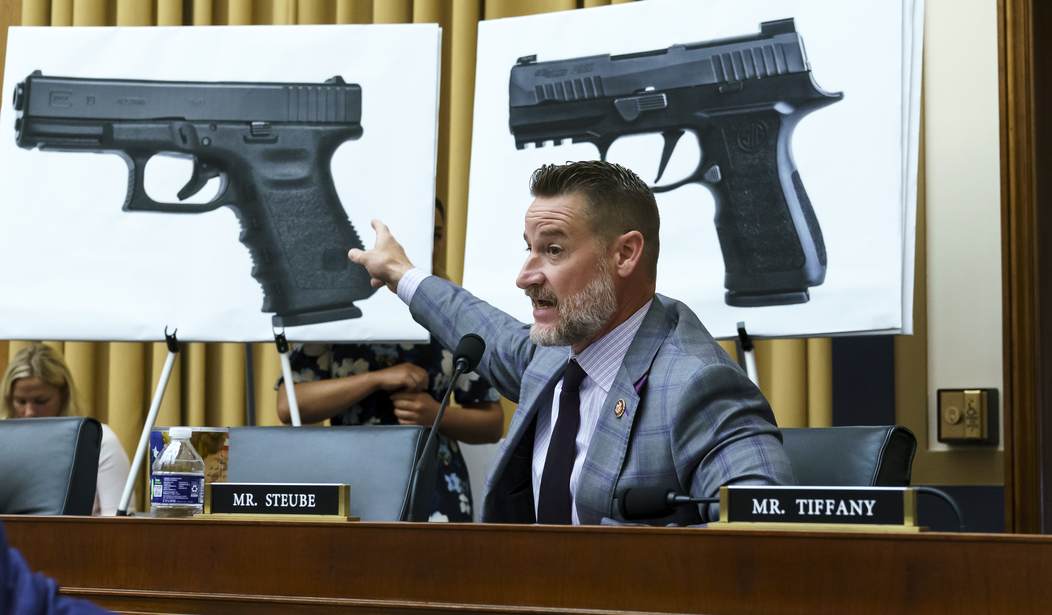Gun control lawmakers and activists now face a big problem as they pass dozens of new laws to substantially limit the Second Amendment rights of law-abiding citizens – this new legislation will almost certainly be deemed unconstitutional.
That’s not my opinion. The Supreme Court made it clear in its recent pro–Second Amendment decision. In language that has drawn shockingly little attention, that ruling shows why many proposed gun restrictions infringe on the constitutional right to keep and bear arms.
Before you can even begin a conversation about whether the proposed laws will have any meaningful effect on mass shootings (they won’t), you need to ask whether the gun restrictions are constitutional. Gun-control advocates don’t want the Constitution to get in the way of their policy objectives—but it’s the truth.
And that’s where the Supreme Court’s recent ruling comes in.
In the case of New York State Rifle and Pistol Association v. Bruen, the Court ruled that law-abiding citizens have the right to carry firearms outside the home for self-defense. The Supreme Court explicitly affirmed that the Second Amendment protects twin rights: “to keep and bear arms,” with “keep” meaning to own or possess and “bear” meaning to carry outside the home.
But here’s the crucial part of the Bruen ruling that has escaped notice. Writing for the majority, Justice Clarence Thomas emphasizes that the proper test of constitutionality—which the Supreme Court established in District of Columbia v. Heller (2008)—“requires courts to assess whether modern firearms regulations are consistent with the Second Amendment’s text and historical understanding.”
Recommended
Simply put, first you need to see what the text of the Second Amendment does (and does not) mention, and then you must look at what firearm regulations were in place at the time of the American Founding. Justice Thomas gives an example: “[W]hen a challenged regulation addresses a general societal problem that has persisted since the 18th century, the lack of a distinctly similar historical regulation addressing that problem is relevant evidence that the challenged regulation is inconsistent with the Second Amendment.”
Gun-control proponents might say that mass killings don’t date back to the 18th century, but those activists are wrong.
The Founders knew all about mass killings which were part of the American experience dating back to the Jamestown colony. On March 22, 1622, Native tribes of the Powhatan Confederacy killed 347 English settlers—men, women, and children. Indian raids represented a serious threat for more than two centuries after the Jamestown Massacre. Two mass killings occurred in 1755 alone. In July, Shawnee Indians attacked Draper’s Meadow, a Virginia settlement. They killed at least five people, including an infant. Then, in October, the Lenape raided a settlement along Penn’s Creek in Pennsylvania, killing fourteen.
In 1774, Mingos and Shawnees launched a series of raids on Virginia settlements. Thousands of settlers were forced to flee. In a letter dated July 1, 1774, James Madison concluded that the attacking Indians were “determined in the extirpation of the inhabitants.”
Likewise, John Adams declared the need for armed self-defense. The next year, Adams described how “hardy, robust” people throughout the colonies had become “habituated” to carrying “their fuzees or rifles upon one shoulder to defend themselves against the Indians.”
Nor did Indian raids present the only danger. During the Revolutionary War, New Jersey’s Pine Barrens offered a haven for robbers, who would plunder, burn, and murder. One historical account explains, “The inhabitants, in constant terror, were obliged for safety to carry their muskets with them into the fields, and even to the house of worship.”
The Founders enshrined the right of the people to keep and bear arms in part because they knew of this history of mass killings. As the testimonies of Madison and Adams illustrate, the Founders recognized the importance of firearms to self-defense.
Supreme Court justice Anthony Kennedy made this point during the Heller oral arguments in 2008. When the attorney for the District of Columbia claimed that the Second Amendment applied only to militias, Justice Kennedy expressed his skepticism. Did the Second Amendment, he asked, really have nothing to do with the American settler’s need “to defend himself and his family against hostile Indian tribes and outlaws, wolves and bears and grizzlies and things like that?”
The Second Amendment did indeed concern that need for self-defense—even, or perhaps especially, in defense against mass killings.
So, when gun-control advocates claim that mass shootings represent a special case that the Founders never knew about or could have predicted, they’re wrong. Right now, they’re using the nation’s anger and fear over mass shootings to push for a raft of new gun-rights restrictions. But those laws will probably violate the Constitution, for reasons the Supreme Court has made crystal clear.
Mark W. Smith is a constitutional attorney and a distinguished fellow at the Ave Maria School of Law as well as the host of the Four Boxes Diner YouTube channel, which discusses Second Amendment history and scholarship.

























Join the conversation as a VIP Member